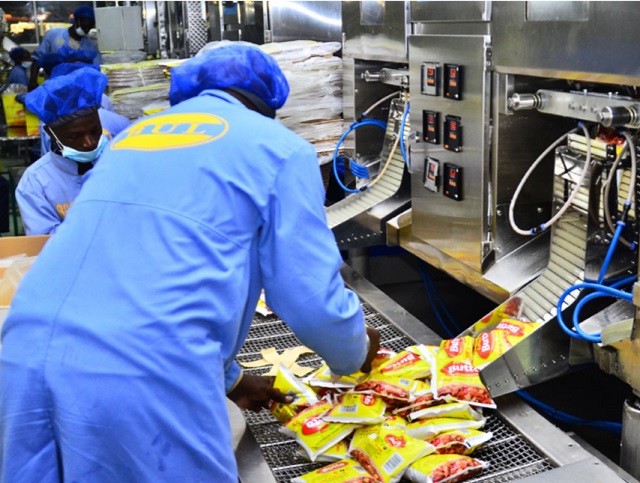
How businesses can restructure strategic initiatives that advance the bottom line and core purpose
COMMENT | JOAN SEMANDA KIZZA | Corporate Social Responsibility and Investment (CSR/I) has grown to become an intrinsic part of practices by many companies across the globe. In the past, all that mattered for businesses was sales and profit maximisation. But this disposition has changed with the realisation that businesses are part of an ecosystem and operate within a network of stakeholders, including employees, suppliers, customers (geographical and local communities), partners, distributors and government among others.
As a result of this ecosystem, businesses have evolved to be socially responsible in their interactions with different stakeholders in the communities they operate in. By implementing managerial tools and actions like CSR/I, businesses can ensure sustainability and stability in their operations. However, while this investment is good for society and communities, it comes at a cost to businesses and not all CSR/I related costs can be directly linked to the bottom-line of a business.
Since the dawn of COVID-19, the financial stability and economic viability of many businesses across the country and world over have been drastically impacted with many being forced to work within strained constraints of time, human resources and budget. According to projections by the International Monetary Fund (IMF) in an October 2020 Global Financial Stability Report, the level of global GDP in 2021 is expected to be a modest 0.6 percent above that of 2019. The growth projections imply wide negative output gaps and elevated unemployment rates this year and in 2021 across both advanced and emerging market economies. This is due to the uncertainty posed by the COVID-19 pandemic on businesses and governments.
Many businesses have been compelled to consider effecting myriad strategies in order to cushion themselves against these drastic economic effects by implementing remedial actions like laying off workers to cut costs, postponing investment decisions, and shrinking annual budgets. But, in the quest to bolster themselves against shock, businesses should not make the mistake to reduce or completely withdraw CSR/I related initiatives.
At the start of the lockdown period, businesses did well in reaching out to help individuals, communities, and government, with donation of cash, vehicles, personal protective equipment and relief items in support of the fight against COVID-19. Whereas these were well intended gestures, they ended up becoming expensive and unsustainable ventures in the long run because they are limited to a heavy and costly one-off ‘expenditure’, within a short-lived period and with minimal impact to the necessary stakeholders as well as little to no impact to the target audience or beneficiaries.
For some organisations, it was the first time they were ever involved in an outreach of this kind in the history of the businesses and therefore had their efforts swallowed up in the noise of the so many donations that were made in this period.
Businesses, therefore, ought to reconsider their options and restructure their CSR/I programmes with a highly strategic bouquet blended with recurrent targeted short-term initiatives or well-designed long-term activities whose results are collectively creating the desired impact and rightly advancing the organisation’s bottom line or long-term strategy and core purpose and therefore are not seen as unnecessary costs to the business.
Through leveraging Corporate Social Investment, businesses can advance people’s lives, nurture talents and expand opportunities for the communities they exist in, in addition to economically empowering them.
For instance, The MultiChoice Talent Factory (MTF), an education programme that develops emerging TV and film talent in Africa, through an accredited 12-month immersion programme including both theory and hands-on experience in cinematography, editing, audio production and storytelling spanning three regions and 13 countries across Africa has impacted the film industry in Africa, bringing to the foyer talent that has won Continental and Global Awards. In Uganda, MTF was launched in 2018 as a part of MultiChoice’s CSI projects and has transcended to impact hundreds of passionate film creators, producers, writers and actors who in turn have risen to produce and feature in ground-breaking and award-winning movie productions around the globe.
This fits well with the Uganda-only programs channel, Pearl Magic, that we piggy-back on to showcase some of the work of local film producers and talent whether or not they are part of the MTF program. To us, it is a promotion of the film industry in Uganda.
Many companies since COVID-19’s emergence have dropped most if not all Corporate Social Investment engagements citing cost-cutting initiatives. Suffice to say, there is some merit to this, however, with well structured and planned CSI programs like MTF, there is no need to drop the initiative.
Interestingly, despite the tough operating environment, instead of halting the program, we took it 100% online and have an even wider reach to the creators around the globe who we have provided globally renowned and award-winning tutors and instructors. A clear demonstration of the versatility a CSR/I program ought to take.
The Corporate Social Investment that is required of companies can stem from as simple an investment as improving employee’s healthcare systems, to improving product and service quality for customers as well as multi-purpose product uses. It can subsidise product prices for humanitarian purposes, invest in providing loans with lower or no interest, supporting community development programs like sports, education, and healthcare while maintaining valuable relationships with partners, suppliers, and the government.
It is important, therefore, to note that businesses which are highly dependent on the communities that they operate in play a key role in growing and developing those communities. Therefore, partaking in corporate social investment which is even more desirable during times of hardships will make a difference.
****
Joan Semanda Kizza is PR and Communications Manager, MultiChoice Uganda
The post Sustaining CSR during financial hardships appeared first on The Independent Uganda:.
from The Independent Uganda: https://ift.tt/3a4PF1D
0 Comments